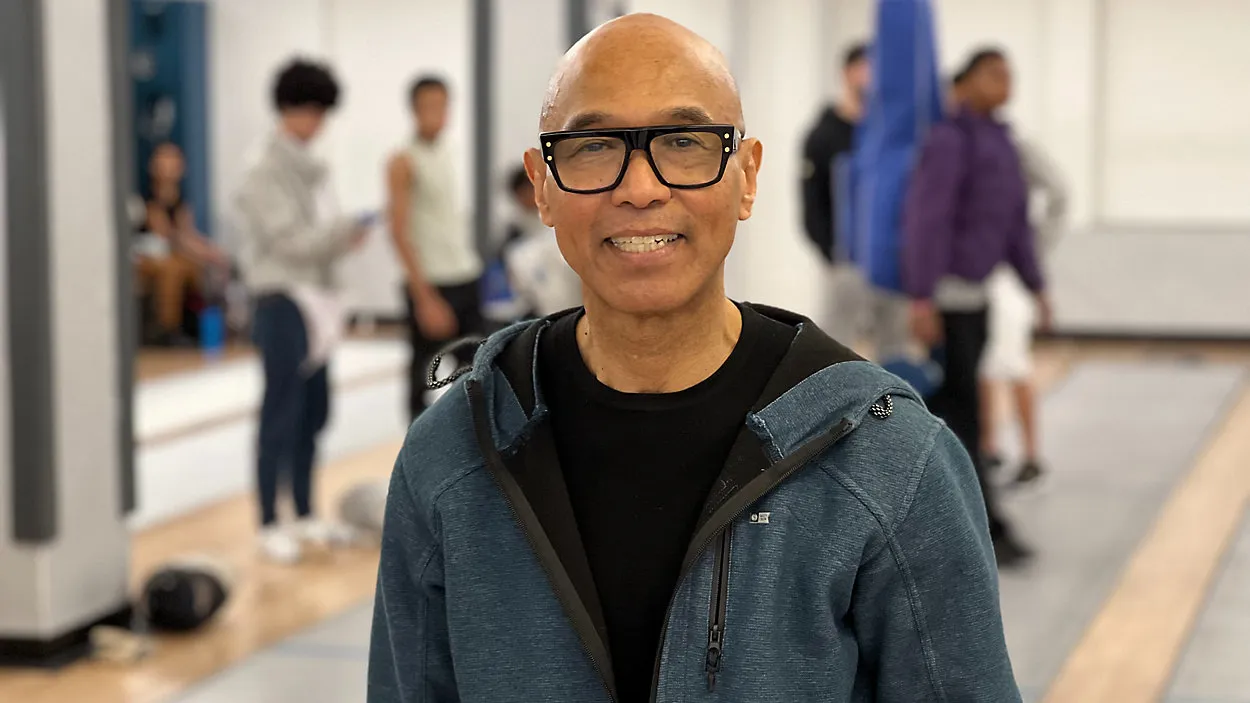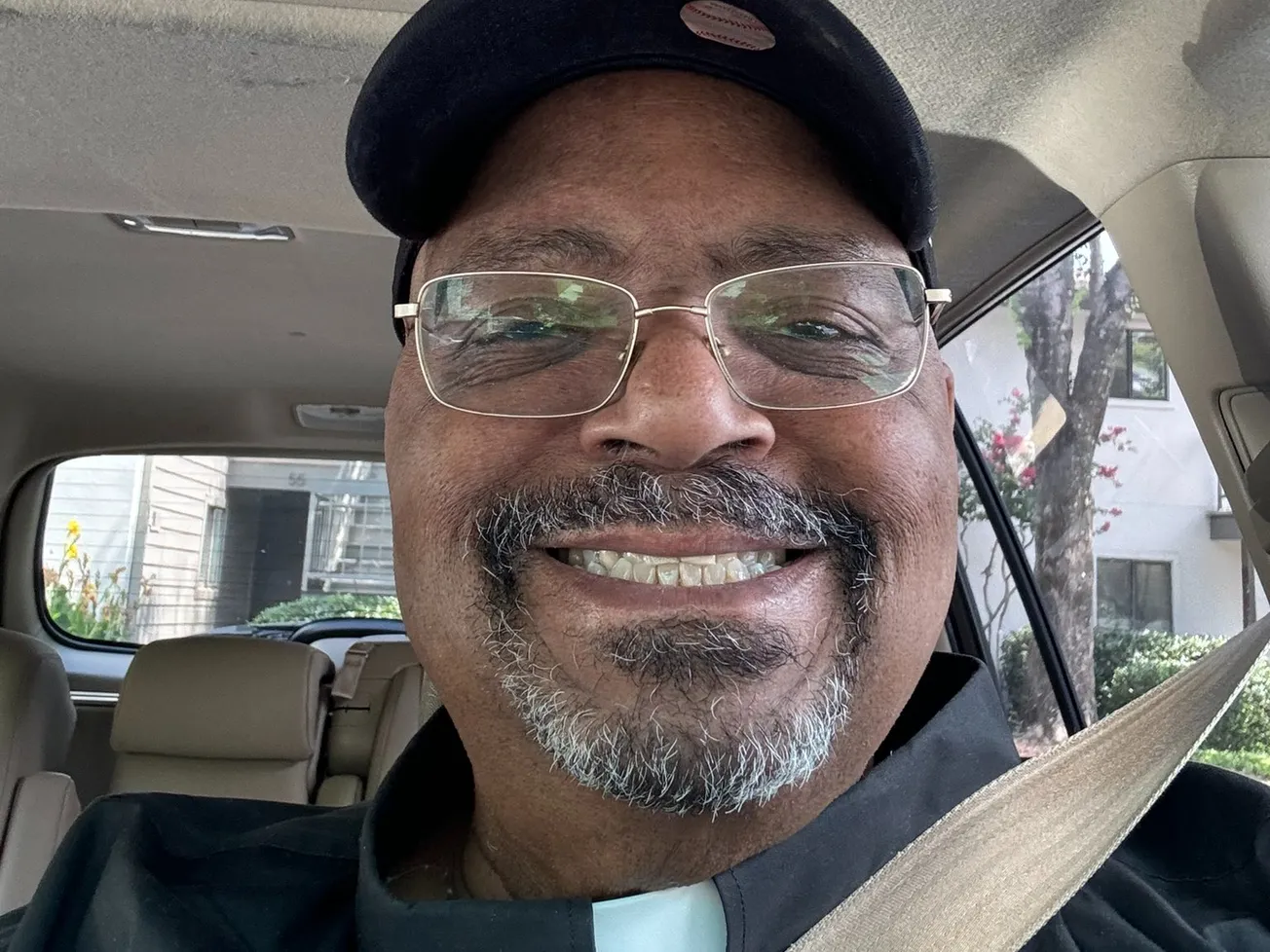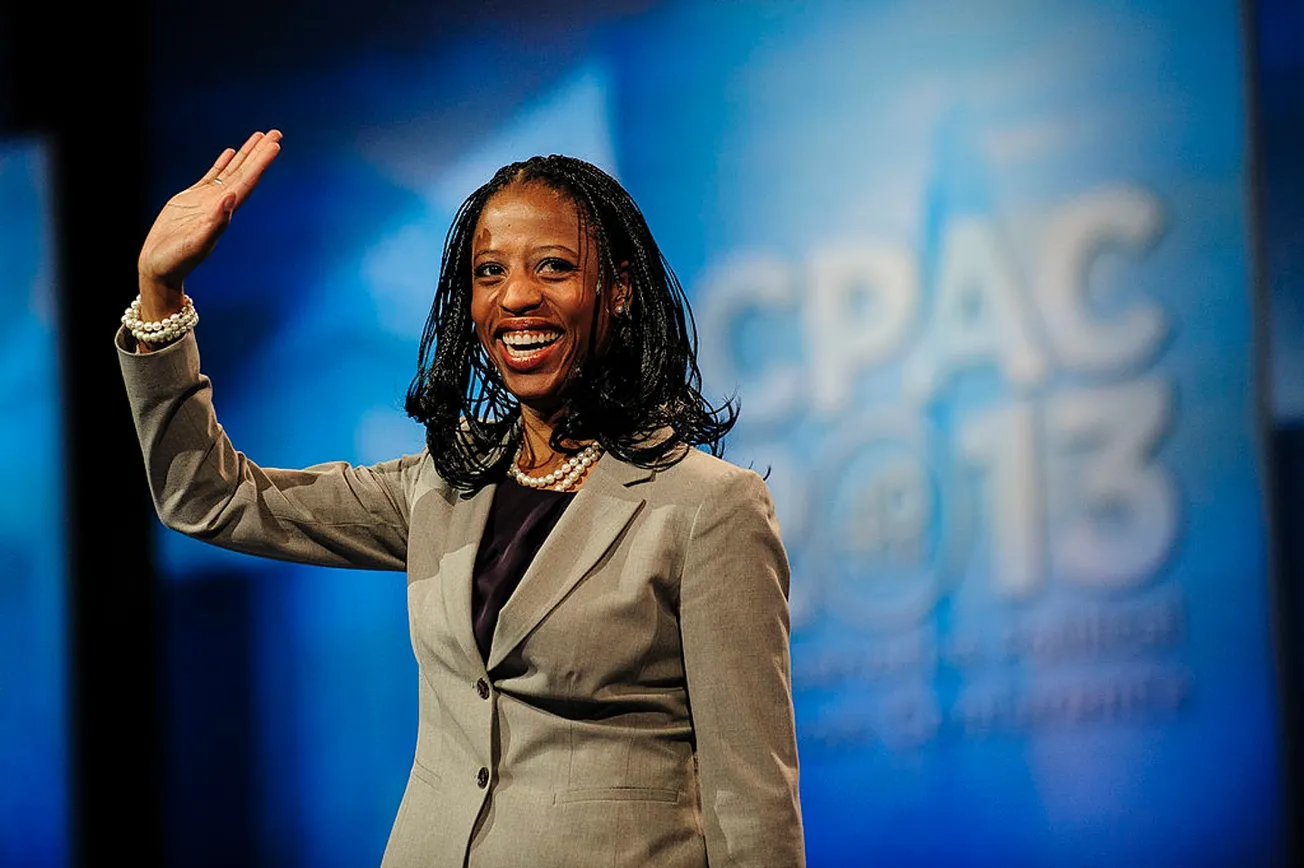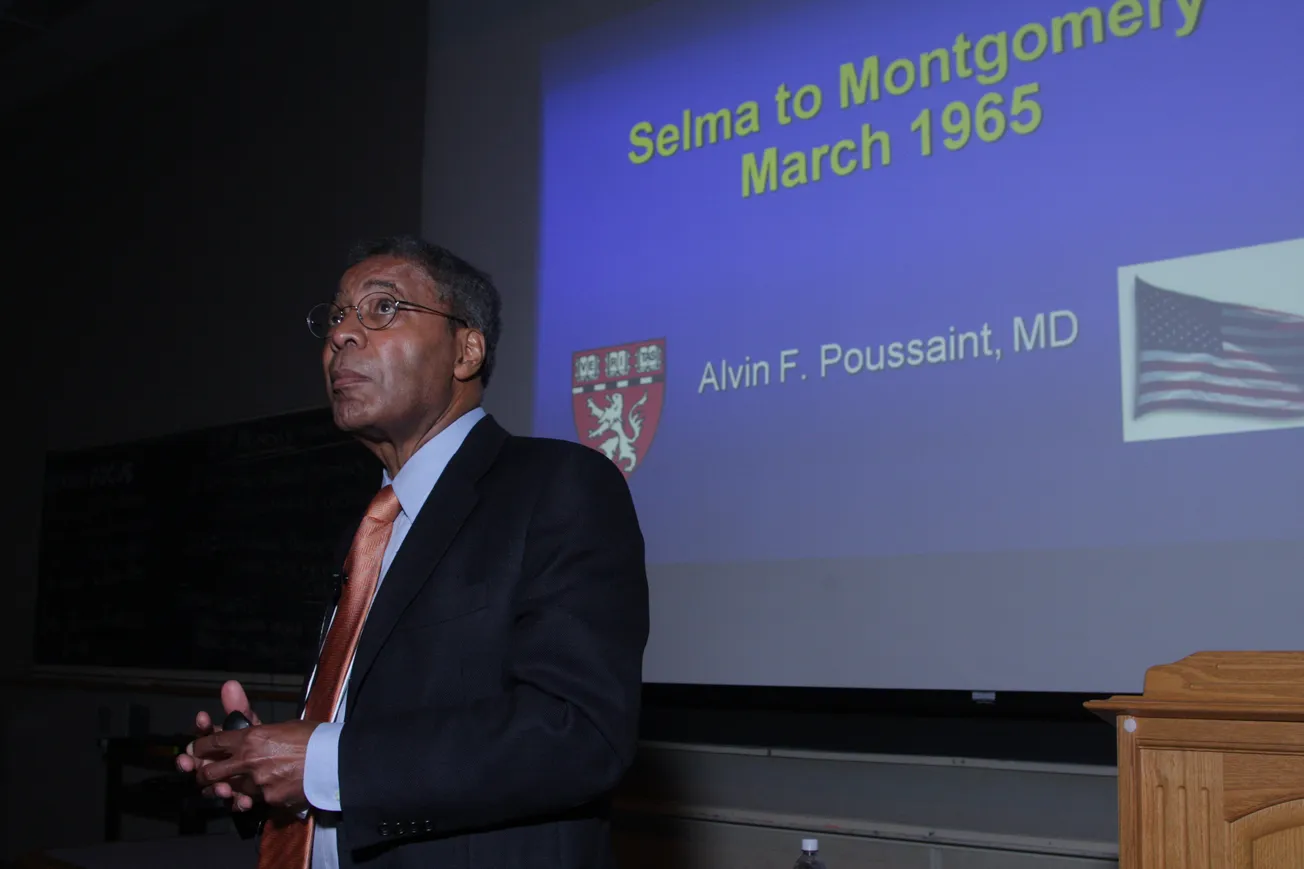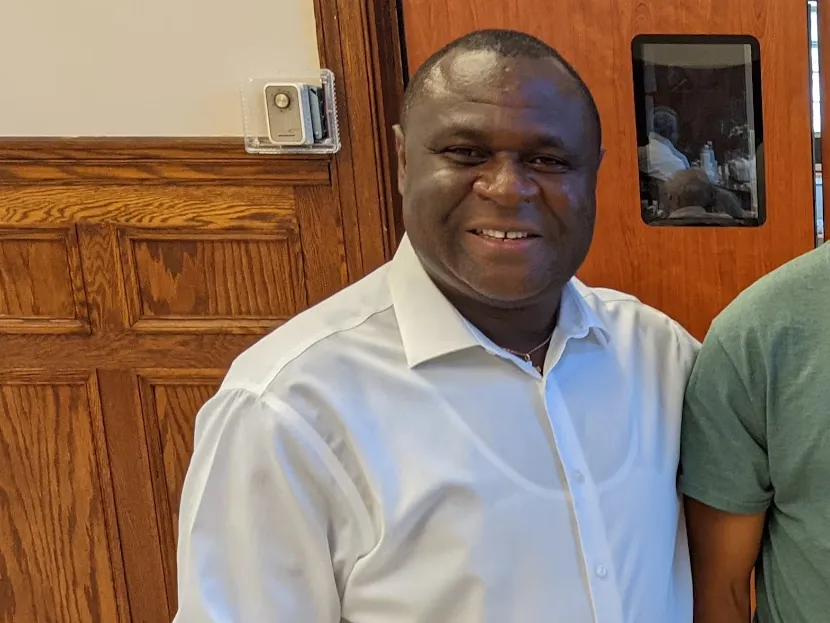The pioneering Black fencing star Peter Westbrook, who won an Olympic medal in the 1980s, has died at 72 in New York. His namesake foundation announced the cause of death as cancer.
“Peter was not only the leader of this organization; he was the consummate embodiment of dedication to athletic excellence, civic engagement, and youth mentorship,” said board chairman Robert Cottingham in a statement.
“His inimitable spirit will be greatly missed by all of the athletes, families and staff of PWF.”
Born in 1952 to a Japanese mother and African-American father, Westbrook was reared as a Catholic in Newark, New Jersey, after his mother separated from his abusive military father when he was four years old. Battling poverty, Peter and his sister attended a historically Black parochial school, St. Peter’s (later Queen of Angels), and later attended Essex Catholic High.
It was there at Essex that Westbrook found his love for fencing, in which he quickly excelled despite being years behind his peers in training.
“Everyone in the fencing program at Essex had started one or two years prior to me, but within a few weeks of starting, I was beating 80 percent of the people, and very soon after, everybody,” he wrote in his 1997 autobiography “Harnessing Anger.”
“I soon had jealousy and rivalry to contend with. Being the only black kid in the program didn't make things any easier for me. I knew the laws of the jungle, and understood that I was on their turf.”
In the early 1970s, he received a college fencing scholarship to New York University, where he trained under Hugo Costello and the future Hungarian master Csaba Elthes. Westbrook won the NCAA saber championship in 1973, his junior year, and placed first as a senior at national championships—a feat he would go on to repeat 12 times after graduation.
Westbrook’s successes also extended into the international sphere, with his first and only Olympic medal, a bronze in individual sabre, coming in at the 1984 Games in Los Angeles—the first for an American in the event in nearly a quarter-century. He won his first Pan American title in 1983 after a number of medal finishes in the decade prior. He returned as champion in 1995, winning a team sabre title the same year.
In total, Westbrook amassed 16 championships across all competitions, and competed with Team USA at every Olympics between 1976 and 1992. His achievements were in many cases the first both for an African-American or an Asian-American athlete.
Peter Westbrook OLY, a six-time Olympian and 13-time U.S. national saber champion who became a transformative figure in American fencing through his Peter Westbrook Foundation, has died at age 72. https://t.co/C0ZTfQajIU
— USA Fencing (@USAFencing) December 1, 2024
Even while managing his competitive career, Westbrook ascended in the marketing world, serving as an executive with IBM, North American Van Lines, and the New York Times. He also served as a coach for rising stars in the fencing world.
Prior to his retirement from professional fencing, he created the Peter Westbrook Foundation, a nonprofit that exposes underserved New York youth to the art of fencing. In its more than 30 years of operations, the organization has incubated a number of Olympians, including Lauren Scruggs—who in 2024 became the first Black American woman to medal in individual fencing at the Games.
“Through Peter’s program, wisdom, and unwavering support, I learned how to become my best and truest self on and off the piste,” Scruggs said following Westbrook’s death.
“I learned how to find my confidence in a world aimed at tearing it down, I learned the passion and fight needed for success, lessons which I used on the Olympic stage, and last, I learned the profound impact of community—its influence evident every Saturday at PWF. While Peter may not be here today, his legacy and spirit live on in all whose lives he touched.”
Just months before his death, Westbrook received the Team USA Community Champions Award for his work with the foundation. He was previously inducted into the International Sports Hall of Fame in 2021, the U.S. Fencing Association Hall of Fame in 1996, and the NYU Athletics Hall of Fame in 1985.
A lifelong man of faith, Westbrook served as an ordained deacon at the Abyssinian Baptist Church in Harlem, which he joined in the late 1980s under the Rev. Dr. Calvin O. Butts III.
In November 2022, Westbrook received a diagnosis of late-stage liver cancer, with doctors giving him only months to live. He later said that, through faith and medicine alike, he outlived the predictions and continued to serve with his foundation.
Westbrook died on Nov. 29 surrounded by his family, with survivors including his wife, Susann; a stepson, Dorian Miles Sr.; a sister, Vivian; and eight grandchildren. He was predeceased by his mother, Mariko, who was murdered in 1994.
Westbrook's funeral services have been scheduled for this weekend in New York, beginning with a wake at 6pm ET on Thursday, Dec. 12, at the Abyssinian Baptist Church. A viewing will take place Friday morning at 10am, with the funeral following at 11am. The Rev. Dr. Kevin R. Johnson will officiate.
Donations can be made to the Peter Westbrook Foundation via its website.
Nate Tinner-Williams is co-founder and editor of Black Catholic Messenger.
Want to donate to BCM? You have options.
a.) Support our #iGiveCatholic campaign.



